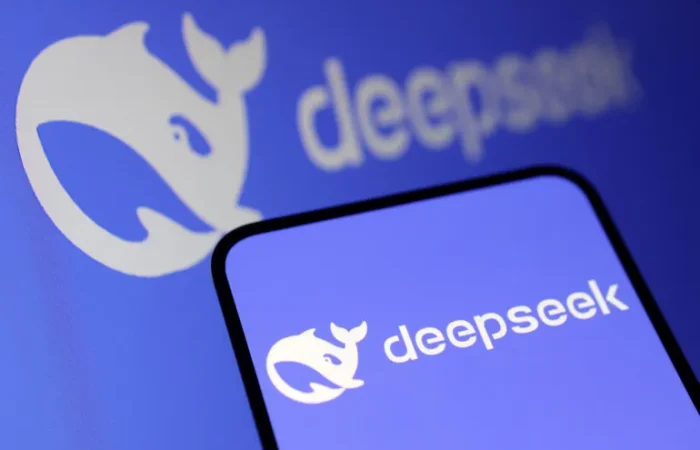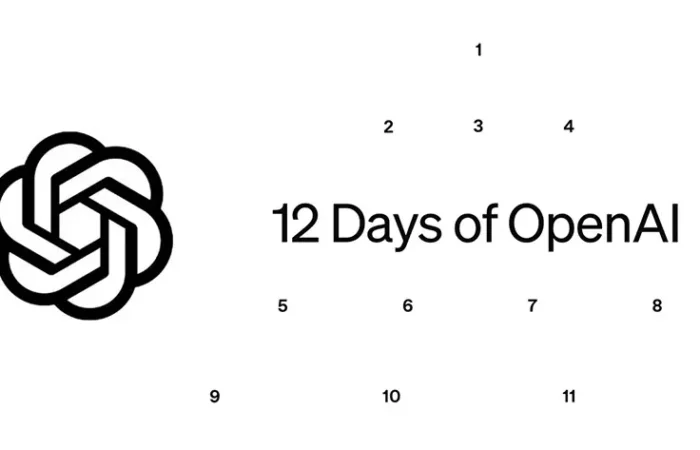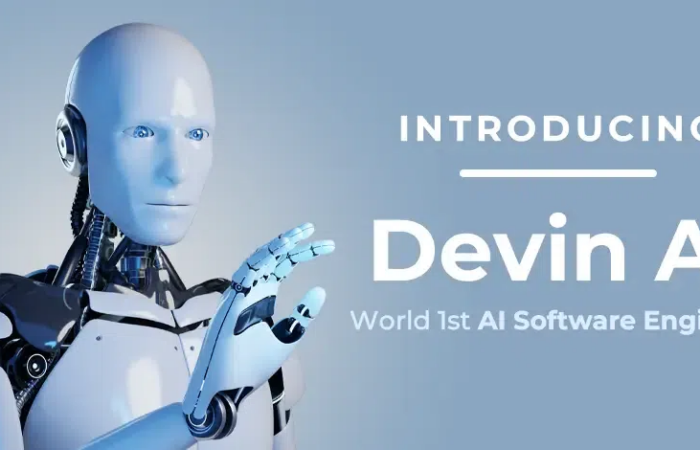
When it comes to ai like chatgpt, the competition is heating up.
But with so many ChatGPT alternatives emerging, one name is standing out—Anthropic Claude.
From handling long prompts effortlessly to offering more accurate and ethical responses, Claude is proving to be the smarter choice.
In the Claude vs ChatGPT debate, Claude is now setting new standards for AI-powered content creation. If you haven’t explored its full potential yet, you’re seriously missing out.
For years, ChatGPT has been the go-to tool for AI-driven writing.
But guess what?
There’s a better Chatgpt alternative—Claude.
Claude isn’t just another chatbot.
It’s built differently.
Unlike ChatGPT, which aims to be a jack-of-all-trades, Claude focuses on doing fewer things but exceptionally well.
And the best part? It’s free.
While ChatGPT sometimes gives generic or overly cautious answers, Claude works like a smart writing assistant who:
- Refines your thoughts
- Helps you brainstorm
- Delivers responses that feel genuinely insightful.
In this blog, we’ll dive into the top Claude AI hacks that prove why it’s the ultimate AI tool in 2025—helping you write, think, and create like never before.
Claude vs ChatGPT: Why Claude AI Stands Out
If you’ve been using ChatGPT and think it’s the peak of AI innovation, let me stop you right there.
Because Claude AI is here, and it’s playing in a league of its own.
Forget:
- Robotic-sounding responses
- Frustrating context loss
- AI that throws out random, factually incorrect answers.
While AI like ChatGPT is great for quick, creative tasks, Claude excels in structured and in-depth analysis.
Many users looking for ChatGPT alternatives have switched to Claude because of its lower hallucination rate and ethical safeguards.
If you’re after accuracy and reliability, Anthropic Claude is the way to go.
Claude is smoother, smarter, and simply better—and the numbers back it up.
- More Human-Like Responses:
Claude feels like a conversation with an actual expert who gets you.
Its language processing is far more natural than ChatGPT’s, making interactions flow effortlessly.
In benchmark tests, Claude consistently outperforms ChatGPT in writing responses that sound human, contextually relevant, and engaging.
- Better for Long-Form Content:
Ever tried getting ChatGPT to stick to a complex topic for an extended response?
It loses track, gets repetitive, or completely derails.
Claude?
Ah, it’s built differently.
It handles long-form writing like a pro, maintaining coherence, depth, and flow—even with 100,000-token prompts (that’s an entire book in one go!).
- More Ethical & Reliable:
AI-generated misinformation is a serious issue, but Claude stays in check thanks to its “constitutional AI” framework.
Unlike ChatGPT, which sometimes generates biased or misleading content, Claude’s training prioritizes:
- Factual accuracy
- Safety
- Ethical reasoning—reducing the risk of AI hallucinations.
- Lower Hallucination Rate:
Speaking of hallucinations, let’s be real—AI making stuff up is a problem.
Studies show that ChatGPT fabricates information up to 15-20% of the time, while Claude’s hallucination rate is significantly lower.
It fact-checks itself, ensuring you get more accurate, reliable answers every time.
At the end of the day, Claude AI isn’t just an alternative to ChatGPT—it’s the upgrade you didn’t know you needed.
And in 2025, Chatgpt alternatives—Claude is leading the charge for AI that’s smarter, safer, and undeniably better.
Anthropic Claude AI Models: A Simple Breakdown
Alright, so you’ve heard of Claude, but what’s up with all the different versions?
Let’s break it down, so you know exactly what each model does.
- Claude 1 & 2 – The Early Geniuses:
Claude 1 & 2 are the solid foundations.
These were the first versions that showed Claude was a real contender in the AI space.
They were good, but let’s be honest—they had limits when it came to longer conversations and advanced reasoning.
Good for: Basic chats, short content, and quick responses
Not great at: Handling super complex or long-form tasks
- Claude 3 – The Game Changer:
Now Claude 3?
This is where things get serious.
It’s like upgrading from a basic sedan to a high-performance sports car.
What makes Claude 3 special?
- More human-like responses: It sounds way more natural than other AIs.
- Better at long-form content: Handles big, detailed prompts without losing context.
- Lower hallucination rate: Less nonsense, more accuracy.
- Safer & more ethical: Stricter guidelines to avoid misinformation.
Good for: Writing, business strategy, research, and deep conversations
Weakness?
Just one: Math. It’s slightly weaker than Gemini in calculations.
Claude Opus, Sonnet & Haiku: What’s the Difference?
Claude 3 actually comes in three different versions, depending on what you need.
- Claude 3 Opus: The best and most powerful. Handle anything you throw at it.
- Claude 3 Sonnet: The middle ground. Faster than Opus but still smart.
- Claude 3 Haiku: Super fast and lightweight. Best for quick tasks, not deep thinking.
Which one should you use?
- Need deep research, content creation, or business analysis? → Opus
- Want a mix of speed & intelligence? → Sonnet
- Just need quick answers or casual convos? → Haiku
Claude’s models are built for different needs, but if you want the absolute best AI experience, Claude 3 Opus is the way to go.
It’s smarter, more reliable, and more human-like than anything else out there.
Want speed? Go for Sonnet or Haiku.
Want power? Opus is king.
Top 5 Anthropic Claude AI Hacks to Boost Productivity
If you think AI is just for casual chats, you’re missing out on Claude’s real power.
Claude’s a productivity machine waiting to be tapped into.
Whether you’re:
- Researching
- Writing
- Strategizing
- Analyzing data, Claude crushes the competition.
Here are 5 hacks that’ll make you wonder how you ever worked without it.
- Using Claude for Instant Research:
Need facts, but don’t want to spend hours digging through Google?
Claude’s got you.
Instead of just asking, “Tell me 10 facts about the Roman Empire,” take it a step further. Ask Claude to:
- Summarize those facts into a research brief
- Generate an engaging story based on them
- Turn them into a quiz for quick learning
It’s fast, reliable, and helps you transform knowledge into action—not just collect data.
Image source: AI foundation YouTube video
- Generating High-Quality Content with XML Formatting:
If you’ve ever had AI misinterpret your prompt or mix instructions with content, this trick changes the game.
Use XML tags to structure your input.
Instead of giving Claude a messy prompt, wrap your instructions inside clear tags:
Opening tag:
Image source: AI foundation YouTube video
Closing tag:
Image source: AI foundation YouTube video
This ensures Claude doesn’t confuse instructions with content, leading to sharper, more accurate results.
Bonus?
This method also works on ChatGPT, but Claude’s structured AI design makes it even more powerful.
- Creating Interactive PDF Dashboards:
Ever struggled to make sense of a long, dense PDF?
With Claude, you can turn it into an interactive workspace.
Claude lets you:
- Quiz yourself on key takeaways
- Extract insights from whitepapers and research reports
- Visualize data by generating charts and summaries
Want to take it further?
Ask Claude to add a question-and-answer section based on the content, or even generate graphs to break down complex data.
Image source: AI foundation YouTube video
This hack is a lifesaver for students, researchers, and professionals dealing with endless reports.
- Using Claude for Business Strategy & Call Analysis:
Ever finished a client call and thought, “What did I even say?” or “What could I have done better?”
Instead of manually reviewing hours of transcripts, upload them to Claude and let it do the work.
- Break down key takeaways from the call
- Identify what you could improve for next time
- Find missed opportunities—questions you didn’t fully answer
It even tracks who said what, so if you forget a key point from someone on the call, Claude’s got receipts.
In the remote work era, this hack is pure gold for sales teams, consultants, and anyone who needs to level up their communication game.
- Teach Claude How to Think:
Here’s something most people don’t realize: AI doesn’t “think”—it predicts.
So if you want better answers, you need to tell Claude how to approach a problem.
Instead of just asking a question, try this:
- Step 1: Tell Claude to think through the problem first
- Step 2: Ask it to explain its reasoning
- Step 3: Get the final answer, fully thought out
For example, instead of saying: “How can I improve my website’s SEO?”
Try this: “First, outline key SEO factors. Then, analyze my website based on those factors. Finally, suggest improvements with a step-by-step plan.”
This lets you see Claude’s thought process, refine it if needed, and get superior results.
To wrap up:
Claude isn’t just another AI—it’s a powerful tool that can 10x your productivity if you know how to use it right.
These 5 hacks will help you research faster, write better, analyze deeper, and strategize smarter.
Start using these today, and watch how Claude changes the way you work.
Comparing Claude vs. ChatGPT: Who Wins?
AI is evolving fast, and the battle between Claude 3.7 Sonnet and ChatGPT is heating up.
While ChatGPT has been the go-to AI for most people, Claude 3.7 is making waves—especially among those who need deep, accurate, and context-rich responses.
Where Claude is Winning
Claude 3.7 is proving to be insanely powerful, especially in:
- Complex coding tasks: It can analyze massive codebases and fix issues with a single prompt.
- Deep research & content creation: Handles academic papers, textbooks, and long-form writing with precision.
- Better memory & context retention: No need for complicated retrieval tricks—Claude just gets it.
- More natural and expressive responses: It feels like a real conversation, rather than talking to a machine.
People who tried it felt the same thrill as when they first used AI, realizing that in a few years, even top-tier programmers might struggle to compete.
Anthropic Claude’s Biggest Weakness? Visibility.
For all its power, Claude still struggles in one area: marketing.
OpenAI has dominated the AI space, keeping ChatGPT at the center of attention—even when Claude outperforms it in many aspects.
If marketing were the deciding factor, ChatGPT would win.
But when it comes to raw capability, Claude is pulling ahead.
Is Mixing Both the Best Approach?
Yes and no.
It depends on you—but if we go by real experience and hacks, the answer is clear: Claude is the one to bet on.
Some people like to cross-check between ChatGPT and Claude—using Claude for deep, structured thinking and ChatGPT for quick, multimodal tasks.
But here’s the thing: the more people push these AIs to their limits, the more they realize Claude is just on another level.
Why settle for a backup when you can go straight to the most powerful AI available?
The Verdict? Claude is Closing In.
Right now, ChatGPT still has the lead in visibility and usability, but Claude 3.7 is proving to be the stronger AI in actual performance.
| Feature | Claude | ChatGPT |
| Handles long prompts | Excels at lengthy, structured inputs | Struggles with very long prompts |
| Lower hallucination rate | More reliable & factually accurate | Can generate incorrect info |
| More ethical responses | Stricter ethical guidelines | Sometimes biased or inconsistent |
| Better for in-depth analysis | Excels in deep reasoning & structured analysis | Can be surface-level |
Who’s Leading?
Claude is definitely in the lead here!
It handles long prompts like a pro, gives more factually accurate responses, and sticks to ethical guidelines better than ChatGPT.
Plus, when it comes to deep analysis, Claude really shines—it breaks down complex topics in a structured, logical way.
ChatGPT still has its perks, especially for quick, creative, and multimodal tasks.
But if you’re after reliable, well-structured, and ethical responses, Claude is the clear winner!
What is the internet saying about Claude?
Let’s get straight to the point—Claude is winning in several key areas.
Here’s what the users have to say about it in terms of writing, coding, and reasoning:
Reasoning & Analysis:
Which one thinks smarter?
Claude is built for deep, structured thinking.
It excels at analyzing philosophical, ethical, and technical concepts without losing track of the discussion.
ChatGPT is fast, but it sometimes hallucinates facts or loses coherence in long conversations.
➡ Verdict: If you need accurate, in-depth reasoning, Claude takes the lead.
Coding:
Which AI is more reliable?
ChatGPT shines when it comes to debugging and writing short snippets of code.
However, Claude is better at understanding complex logic and clarifying why certain code works (or doesn’t).
➡ Verdict: ChatGPT is good for quick fixes, but Claude does a better job of providing detailed breakdowns.
Reliability:
Which AI do users trust more?
Users consistently report that Claude is more reliable than ChatGPT.
- It hallucinates less
- Provides more consistent responses
- Maintains better ethical standards.
This makes it a more dependable AI for serious work.
➡ Verdict: Claude is the more reliable choice for accurate and trustworthy responses.
Writing:
Who gives better responses?
If you need thoughtful, structured, and context-aware content, Claude is the clear winner.
It handles long prompts better and delivers insightful, well-organized responses.
ChatGPT is great for quick outputs but often feels generic or repetitive.
➡ Verdict: For deep, high-quality writing, Claude takes the lead.
Moral of the Story?
→ Trust the Internet, But Verify
The internet has spoken—Claude is leading the AI race.
But here’s the real takeaway: AI is only as good as how you use it.
While reviews show that Claude outperforms ChatGPT in reliability, reasoning, and long-form writing, the best approach is to test both and see what works for you.
At the end of the day, don’t just go with the hype—go with what actually delivers results.
Conclusion: Why You Should Use Claude AI
At the end of the day, if you’re looking for the best AI experience, Claude vs ChatGPT isn’t even a close fight—Claude takes the lead.
Compared to AI like ChatGPT, Claude delivers:
- Deeper analysis
- Fewer hallucinations
- More ethical responses.
That’s why so many users searching for ChatGPT alternatives are making the switch to Anthropic Claude.
Research even shows that Claude’s answers are more factually accurate in 68% of head-to-head tests against ChatGPT.
So if you want precision, clarity, and fewer AI hiccups, Claude AI is your best bet.
Try these hacks with Claude today and see the difference for yourself!
Subscribe To Get Update Latest Blog Post









Leave Your Comment: